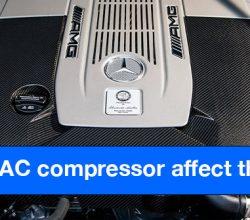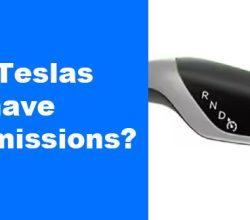Do you want to know how many watts a car battery can store? You’ve arrived at the correct location. Because many people utilize automobile batteries for other items, these are the most often asked questions regarding them. In this post,
We will provide you with all the necessary information on wattage in automobile batteries. We’ll dig deeper into what contributes to selecting the correct battery for your vehicle.
The number of watts in a vehicle battery is discussed in this section. It goes over the various aspects that influence what you can accomplish with your car battery and how much power it has in-depth. For example, if your engine is running, you will get more mileage out of your car battery than if it is turned off.
In this post, we have discussed how many watts is a car battery and will go over some of the advantages of having a more significant power capacity in a car battery and how that keeps your children secure in a crisis.
Power of a car battery
The automobile battery is a rechargeable energy source that supplies the electricity required to start and maintain your vehicle’s engine. It also powers all of your car’s electrical systems, allowing you to listen to music, turn on the lights or air conditioning, and recharge electronic gadgets while driving.
Battery capacity measures a car’s battery’s ability to store a charge and is calculated by evaluating active materials in the storm. One of the criteria in determining the efficiency of a storm is its capacity. It’s a measurement of how much power it can hold for an extended period before going out.
The capacity of your battery is the amount of charge it can hold. The mass of active material in the battery is used to calculate it. The highest quantity of energy that a battery can put off under a given condition is capacity. However,
the actual storage of batteries ranges based on the nominal voltage, as the battery’s age and history, determine abilities. It’s also influenced by the battery’s charging and discharging cycles and working conditions.
Watt-hours, Kilowatt-hours, and ampere-hours are all units of capability. Ampere-hours, or Ah, is the most frequent unit. This unit is widely utilized because the battery voltage varies throughout charging or discharging cycles, this unit is widely
What is the Average Watt-hour capacity of a car battery?
A vehicle’s alternator charged the battery at a 30 or 300-watt-hours rate. If a battery can sustain five amps for 10 hours, it has a capability of 50 amp hours, or 600 watt-hours altogether.
Whenever dealing with automobile battery watt-hours, another crucial term to comprehend is the voltage when dealing with automobile batteries watt-hours. As well as different voltages. Most automotive batteries have a voltage ranging from 1.5 volts or an AA battery to 12 volts.
Also Read: Why the car shakes when AC is on? | 7 Major Reasons
Most important factors to consider when purchasing a car battery:
How many watts is a car battery? Is really a consideration. Many individuals don’t think about selecting the correct automobile battery unless they have an issue with their current one. It’s critical to know what to look for if you’re in the marketplace for a repair or replacement. Here are some crucial factors to think about while selecting your new battery:
Whenever batteries lose control for the first time, they crack and lose their charge over time due to wear and strain on internal parts and respond adversely to other battery types. You should choose a reputed provider to ensure that your purchase is manufactured with excellent craftsmanship. Invest in lengthy batteries that will keep your car running for many years.
Whenever searching for a new battery, it’s also essential to think about how long it can last before considering being recharged. Consider battery while selecting the correct battery. This will ensure that you have access to electricity and in any condition, your battery may be in.
Power Rating
You’ll also like to understand how many watts the battery you’re contemplating can withstand before it runs out of juice and how many amps are required to start and maintain your vehicle.
Before selecting a battery for your vehicle, it’s critical to analyze the essential aspects. Understanding a few crucial details about what you’ll be using the battery for and how you’ll be using it will help you ensure that it meets all of our requirements while also fitting into other factors such as safety regulations and pricing range.
Service life
Keep in mind that all batteries will eventually need to be replaced—the most excellent approach to ensure that they last a long time is to maintain them well. Examine your battery’s serviceability or shelf life if you want it to last a long time. You wouldn’t want a product that just lasts a few years before it breaks down.
In cold temperatures, the battery is the source of energy that fires your vehicle’s starter motor. When picking an automobile battery, consider how well it performs in cold weather situations, as this will affect whether or not you can get moving at all.
Warranty
You’ll need to ensure your purchase is backed up with outstanding customer services and warranties. This will assure if the battery breaks (which it will eventually), experts will be around to repair or replace it at no additional cost to you.
Never purchase a battery before first checking the warranty. If something goes wrong with your purchase, the contracts will safeguard you from faulty batteries and enable you to avoid money in the next.
The cost of a battery might vary significantly from one to another. It’s critical to think about what characteristics you want in a vehicle battery and then pick one that meets your budget and provides those qualities.
Battery budget
The fresh vehicle battery’s cost will be determined by its kind, dimensions, brand, strategic reserve capacity rating, and serviceability. Make sure you’re making a conscious decision and not purchasing more than you require.
It is also essential to determine whether the battery is poor or maintenance-free whenever purchasing an automobile battery. Neither liquid electrolyte is used for maintenance-free power batteries, and they’re sealed, so there’s nothing to repair over their lifetime.
Low-maintenance varieties require distilled water now and again; this provides an unsealed cap, making it easier to fill up on fluid as needed and inspect the inside for anything that needs replacing or fixing.
Also Read: Why Does My Car AC Smell Like Vinegar? | Simple Guide!
Signs that the battery is going bad:
Whenever a battery fails, it can spit or produce strange noises when you try to start the automobile. Corrosion on the terminals and filthy connections between wires and power sources in your starter are two common causes.
It’s critical to pick an automobile rechargeable battery that is compatible with the battery in your vehicle. Using an overly powerful charger might cause your battery to overheat and get damaged, which could be expensive to replace. Examine your vehicle’s manual to figure out the wattage for your battery charger, examine your vehicle’s manual.
Conclusion
In this guide, we have discussed how many watts is a car battery. Whenever it comes to using your automobile battery as a source of energy, consider a few factors. To begin, you may have to know how so many watts the battery can provide at any particular time. Second, determine the power consumption of whatever item you’re putting in will be, and third, ensure that the battery has enough charge to complete the procedure.
It’s usually a good idea to invest in a long-lasting automobile battery. Whenever it’s time to repair anything, several factors to examine before making purchases. They also include the type of power cell required (automotive or stationary) and the appropriate size/capacity for your vehicle and purpose. this will help you a lot regarding your batteries.



